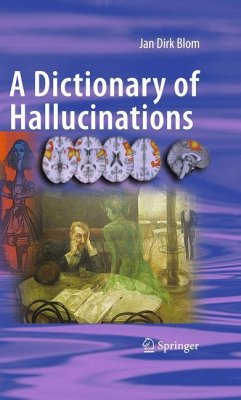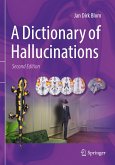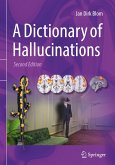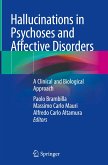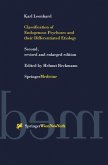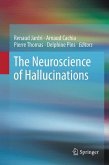A Dictionary of Hallucinations is designed to serve as a reference manual for neuroscientists, psychiatrists, psychiatric residents, psychologists, neurologists, historians of psychiatry, general practitioners, and academics dealing professionally with concepts of hallucinations and other sensory deceptions.
From the reviews:
"This reference focuses on a very specific subject--hallucinations and associated sensory and perceptual phenomena. It provides a comprehensive, up-to-date listing of words, terms, concepts, and people associated with its subject. ... Entries are arranged alphabetically and are clearly delineated from one another. Each is accompanied with source references, enabling readers to delve more deeply into the topic. ... it will be most useful for a highly specialized audience of mental health professionals and scientists. Summing Up: Highly recommended. Researchers/faculty and professionals/practitioners." (C. L. Mejta, Choice, October, 2010)
"Blom, a Dutch clinical psychiatrist who specializes in psychotic disorders and has a Ph.D. in philosophy, aims to reexamine the concepts behind hallucinations from classic psychiatry and incorporate them into current research. ... Cross-references are listed throughout the book. ... Recommended-this is an original work that will serve as a starting point for health professionals trying to understand various hallucinations. ... this book is an appropriate purchase for academic and medical libraries." (Rebecca Raszewski, Library Journal, September, 2010)
"I was pleasantly surprised therefore to find that this is a very solid, workman-like scientific text. ... I am very glad to welcome this one. ... an extremely well laid out reference book. ... The topic is of importance to psychiatrists, neurologists and clinical psychologists. Academic or medical libraries catering for those disciplines can be warmly recommended to consider this for acquisition. ... I hope that this adds up to an adequate market for a well-wrought reference book." (Martin Guha, Reference Reviews, Vol. 25 (1), 2011)
"The aim of this dictionary is to make such a body of work more accessible by providing an alphabetical list of key terms and concepts. ... Much of what is covered is as onewould expect ... . would undoubtedly be of interest to anyone curious about the history and nuances of descriptive psychopathology ... . I would therefore recommend this book for reference ... . It would be a good addition to a reference library ... ." (Stephen Ginn, Journal of Mental Health, Vol. 20 (1), February, 2011)
"This reference focuses on a very specific subject--hallucinations and associated sensory and perceptual phenomena. It provides a comprehensive, up-to-date listing of words, terms, concepts, and people associated with its subject. ... Entries are arranged alphabetically and are clearly delineated from one another. Each is accompanied with source references, enabling readers to delve more deeply into the topic. ... it will be most useful for a highly specialized audience of mental health professionals and scientists. Summing Up: Highly recommended. Researchers/faculty and professionals/practitioners." (C. L. Mejta, Choice, October, 2010)
"Blom, a Dutch clinical psychiatrist who specializes in psychotic disorders and has a Ph.D. in philosophy, aims to reexamine the concepts behind hallucinations from classic psychiatry and incorporate them into current research. ... Cross-references are listed throughout the book. ... Recommended-this is an original work that will serve as a starting point for health professionals trying to understand various hallucinations. ... this book is an appropriate purchase for academic and medical libraries." (Rebecca Raszewski, Library Journal, September, 2010)
"I was pleasantly surprised therefore to find that this is a very solid, workman-like scientific text. ... I am very glad to welcome this one. ... an extremely well laid out reference book. ... The topic is of importance to psychiatrists, neurologists and clinical psychologists. Academic or medical libraries catering for those disciplines can be warmly recommended to consider this for acquisition. ... I hope that this adds up to an adequate market for a well-wrought reference book." (Martin Guha, Reference Reviews, Vol. 25 (1), 2011)
"The aim of this dictionary is to make such a body of work more accessible by providing an alphabetical list of key terms and concepts. ... Much of what is covered is as onewould expect ... . would undoubtedly be of interest to anyone curious about the history and nuances of descriptive psychopathology ... . I would therefore recommend this book for reference ... . It would be a good addition to a reference library ... ." (Stephen Ginn, Journal of Mental Health, Vol. 20 (1), February, 2011)

